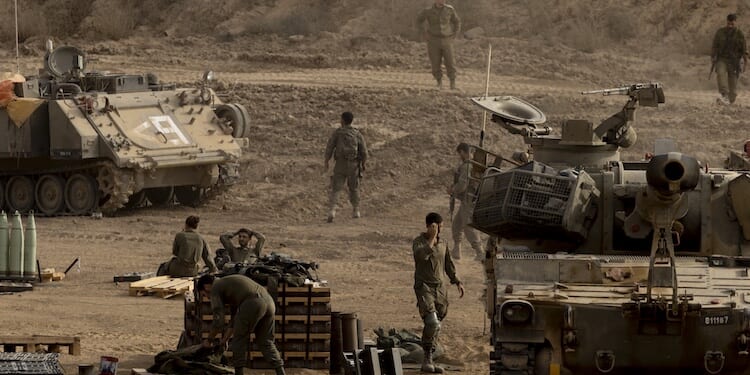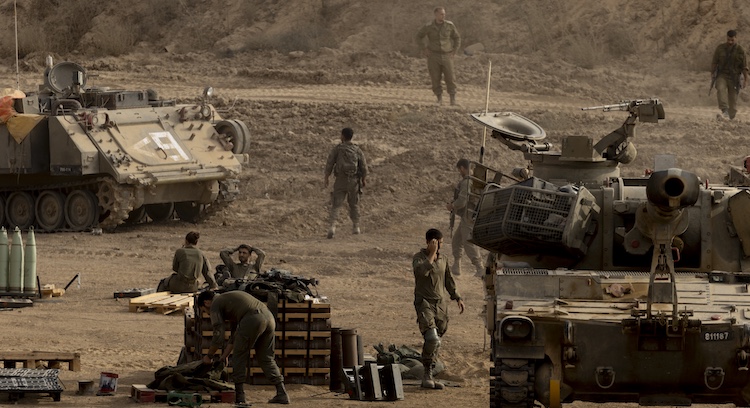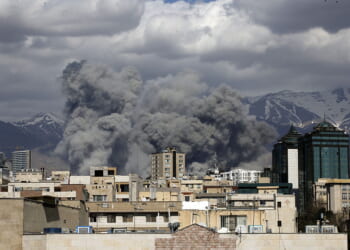For two years, the discourse around the war between Israel and Hamas was basically Austin Powers vs. Golda Meir. The fictional spy would ask, on behalf of much of the world, his famous question: “Why won’t you die?” To which Israel’s iron lady would respond with her own famous quote: “The Jews’ secret weapon is that we have nowhere else to go.”
When Hamas began this war, it created the conditions of the war’s end: return the hostages it had taken and step away from the levers of power. Israel’s demands echoed those conditions—conditions which, again, were set by Hamas’s actions, not Israeli politicians’ whims.
Israel meant it. That’s the epitaph of this war.
Israelis have much to be proud of. Included on that list is their willingness and ability to defend their country until the conditions for ending the war had been met.
In his 2003 book How Democracies Lose Small Wars, Israeli political scientist Gil Mirom wrote that democracies “are restricted by their domestic structure, and in particular by the creed of some of their most articulate citizens and the opportunities their institutional makeup presents such citizens.” The institutions of a democracy, in other words, tend to elevate public opinion, which is often critical of war. Small wars require more prolonged periods of fighting among and around civilian populations, and adversarial press and activism aren’t repressed in a democracy, so they turn the tide of public opinion in their direction.
Democracies therefore tend not to have the stomach for winning small wars. They do, however, tend to win big wars, when the perceived stakes are higher and armed combat is more traditional. Indeed, democracies spent the 20th century reshaping global politics by winning world wars.
We don’t have to go back nearly that far to see how this plays in Israel. When Iran opened state warfare against Israel this past year, the IDF crushed the Iranians with little pushback from the public in Israel or abroad. Democratic leaders felt more comfortable defending Israel’s role against Iran. But even though Iran was ultimately behind decades of small wars in Lebanon and Gaza that built up into the October 7 conflagration, public opinion in Israel and abroad had far less appetite for what was required to win in those places.
Small wars are usually insurgencies, which means they are often directed against an occupying power that will pick up and leave if the cost gets too high. Israel’s small wars are the opposite, hence that Golda Meir quote: There is nowhere to go. The Jews have reconstituted their state on the same land where they have done so for thousands of years. There’s no place for the Land of Israel to go. So it either survives or is destroyed.
The indigenous nature of Jewish sovereignty in the land, and the sliver on which Jews can live freely surrounded by the gargantuan Arab world, forecloses every option except coexistence and slaughter. Hamas, as the government of Gaza, chose slaughter, which means someone has to lose.
Hamas chose the nature of the war: the kind for which democracies quickly lose their nerve. And indeed, many democracies did: Only the president of the United States and the chancellor of Germany seemed to understand the threat that would be unleashed if they surrendered to the most evil force the world has seen since the Nazis.
In this atmosphere, Israel’s refusal to back down should be a great point of pride. Even after thousands of years, the Jews are still told by the world that they have a place among the nations only as a subservient minority population. The pressure to conform was immense, the moral and psychological blackmail was taken to obscene levels, and still the Jewish state held to its demands.
There was no honest argument against Israel’s insistence on the return of the hostages, so insane arguments were invented. The “genocide” label was perhaps the most ridiculous of all if only because it was debunked before it was even applied. Israel said “return the hostages you took and concede the war, and we’ll end the operation in Gaza.” Genocidal intent cannot be construed from this even by the cleverest anti-Semite in the world.
And now Israel has kept its word to the letter. Hamas has been defeated and Hamas’s supporters abroad have been humiliated. But you can see why they thought they might not be left looking foolish: Most of the time you can accuse a democracy of committing genocide and that democracy will back out of a small war.
Winning a small war in this environment required incredible fortitude. Israelis were up to the task.


















